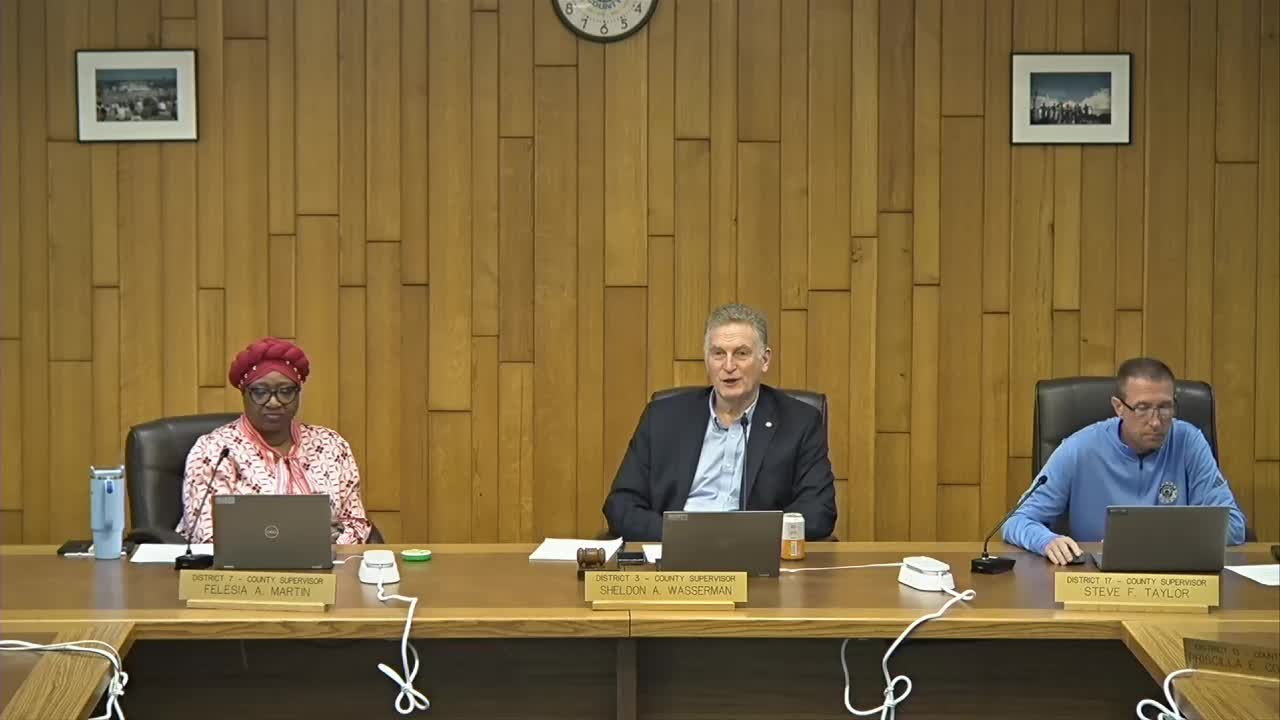Weir Nature Center proposes five‑year site improvements: garage, nature‑explore area, trail repairs and erosion work
Get AI-powered insights, summaries, and transcripts
Subscribe
Summary
Weir Nature Center staff briefed the Parks and Culture Committee on May 6 about a five‑year site improvement plan intended to respond to rising visitation and to expand education and accessibility at the Whitnall Park nature center.
Weir Nature Center staff briefed the Parks and Culture Committee on May 6 about a five‑year site improvement plan intended to respond to rising visitation and to expand education and accessibility at the Whitnall Park nature center.
"We are located in Whitnall Park. We have 220 acres and five diverse habitats," Andrea Wallace, assistant director of recreation and business services, said while outlining the center's footprint and program growth. She said Weir staff hosted roughly 24,000 students, youth, families and adults through experiential programs in 2024 and that a new trail counter recorded trail counts increasing from about 100,000 in 2023 to 200,000 in 2024.
Staff described a package of projects they hope to implement in the next five years. Top priorities include construction of a stewardship garage and service yard to replace three aging storage sheds and to consolidate equipment used to maintain the natural areas; expansion of a "nature‑explore" play area for older children to encourage hands‑on outdoor learning; and targeted trail improvements.
Planned trail work focuses on the All‑Abilities Trail (formerly called the Family‑Friendly Trail), a Prairie Trail that traverses four acres of actively managed prairie and a lake‑loop trail below a waterfall where erosion from heavy use has been identified.
"We'd like to redesign that space to allow for people to explore and engage but also put in infrastructure that will support the amount of people who want to walk there," Wallace said, describing the lake‑loop proposal.
Other projects on the plan include creating an outdoor classroom or covered learning area to relieve pressure on the indoor visitor center, adding shade cover to the amphitheater, long‑range erosion control work in collaboration with the City of Franklin and potential partners such as MMSD and Fund for Lake Michigan, and assessing feasibility for a single, properly permitted raptor enclosure to support a live educational bird program.
Wallace said the nature center has two all‑terrain wheelchair units (provided through Accessibility Wisconsin partnerships) that allow people with mobility disabilities to access trails at no cost. She also highlighted a $30,000 gala and other fundraising that supported the site's 50th‑anniversary activities and ongoing programs, and she said a friends group helps underwrite events and programming.
Supervisors asked about prescribed burns and partner roles; staff said prairie and oak‑savannah burns are on a 3–5 year rotation and that the nature center is engaging city and regional partners for larger erosion‑control planning. Several supervisors praised the friends group's fundraising and urged other parks to replicate the center's partnership model.
Staff said community input and volunteer support will shape project timelines and that some projects—particularly erosion control and any raptor program—require additional planning and permitting before implementation.
